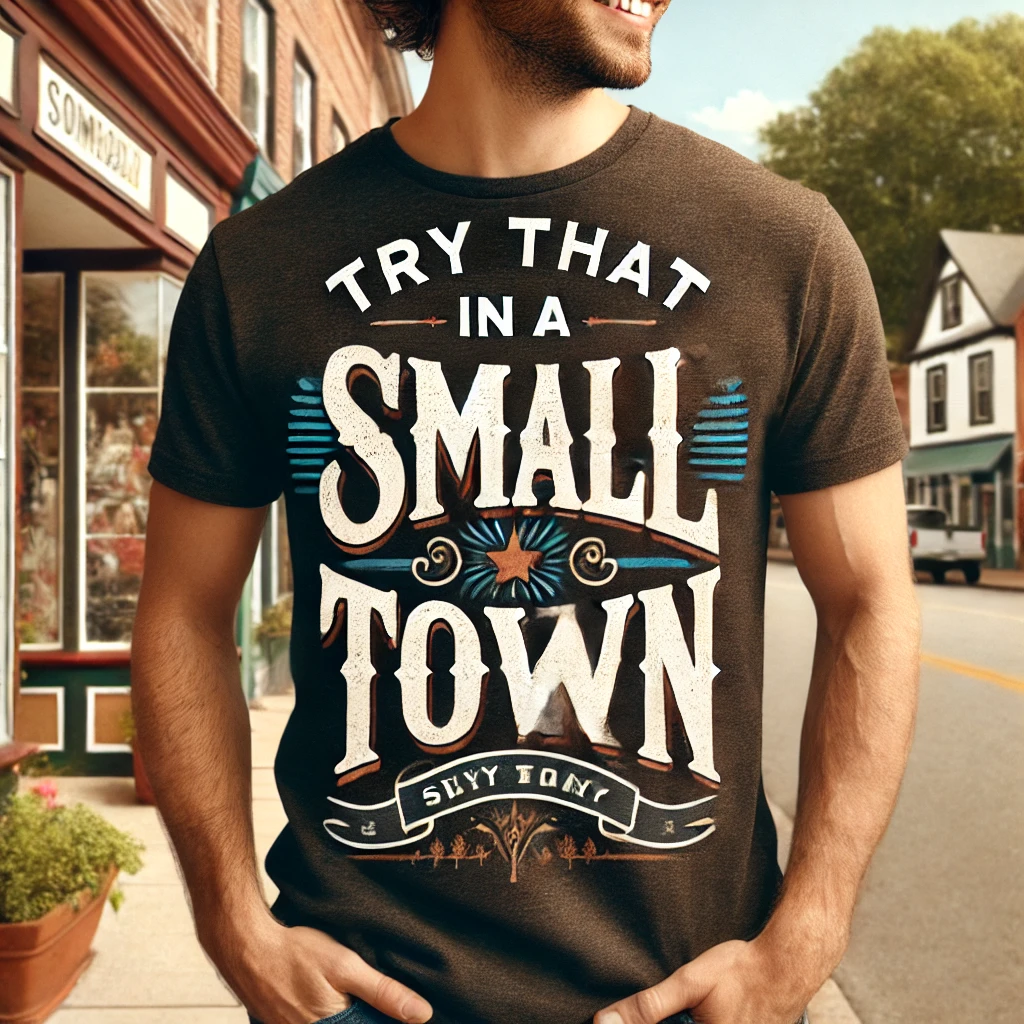
Non-Synthetic Clothing: Why Choosing Natural Fabrics Matters
Overview of the Growing Trend Toward Non-Synthetic Fabrics
In recent years, there has been a notable shift in consumer preferences toward non-synthetic fabrics, driven by a growing awareness of the environmental and health impacts of clothing choices. As more people become conscious of the effects of the fashion industry on the planet, there is an increasing demand for non-synthetic clothing made from natural fibers such as cotton, linen, and wool. This trend reflects a broader commitment to sustainability, with many shoppers actively seeking out 100 organic cotton clothing and supporting brands that prioritize eco-friendly practices. The focus on non-synthetic materials has also led to the emergence of a variety of 100 cotton brands, which cater to the growing audience looking for ethical and sustainable options.
Importance of Making Conscious Fashion Choices
The significance of making conscious fashion choices cannot be overstated. The production of synthetic fabrics, which dominate the fashion landscape, is often associated with high levels of pollution, excessive water usage, and harmful chemical exposure. By opting for non-synthetic alternatives, consumers can significantly reduce their environmental footprint while promoting a healthier lifestyle. Pure cotton clothes, particularly those crafted from 100 percent organic cotton, offer an excellent alternative, as they are biodegradable, renewable, and produced without the use of toxic chemicals.
Moreover, the rise of organic apparel brands underscores a growing demand for clothing that aligns with ethical values. Consumers are increasingly drawn to pure cotton clothing brands that provide transparency in their supply chains and adhere to sustainable practices. This conscious shift toward cotton only clothes not only supports the environment but also fosters a sense of responsibility among consumers. By embracing non-synthetic clothing options, individuals contribute to a more sustainable future and pave the way for a fashion industry that prioritizes both people and the planet.
Understanding Non-Synthetic Clothing: Definitions and Benefits
What Constitutes Non-Synthetic Clothing
In recent years, the conversation around sustainable fashion has shifted significantly, bringing non-synthetic clothing into the spotlight. Non-synthetic clothing refers to garments made from natural fibers rather than synthetic materials. This includes fabrics derived from plants, animals, or minerals, such as cotton, linen, wool, and silk. Specifically, 100 percent organic cotton is cotton grown without harmful chemicals and pesticides, ensuring a safer product for both the environment and the consumer. Organic apparel brands that focus on 100 cotton brands are leading the way in offering stylish and eco-friendly options, highlighting a commitment to sustainable practices throughout their production processes.
Key Advantages of Choosing Natural Fabrics
Choosing non-synthetic clothing, particularly pure cotton clothes, offers numerous advantages that benefit both individuals and the planet. One significant aspect is environmental sustainability. Non-synthetic fabrics, especially 100 organic clothing, are more eco-friendly compared to synthetic options. The production of synthetic materials like polyester involves petrochemicals, contributing significantly to pollution and carbon emissions. In contrast, organic cotton is grown using sustainable practices, promoting biodiversity and soil health.
Moreover, natural fabrics like organic cotton are free from harmful chemicals, making them ideal for those with sensitive skin or allergies. Pure cotton clothing is hypoallergenic, soft, and breathable, allowing the skin to breathe and reducing the risk of irritation. In a world filled with synthetic fabrics treated with chemicals, choosing 100 percent organic cotton means opting for a healthier choice for yourself and your family.
The Impact on Personal and Planetary Health
Opting for non-synthetic clothing not only enhances personal well-being but also supports a broader ethical movement within the fashion industry. Many pure cotton clothing brands are dedicated to ethical production practices, meaning that by choosing these brands, you support fair labor conditions and sustainable manufacturing processes. The fashion industry has faced criticism for exploitative labor practices, and by opting for non-synthetic clothing, you help promote a more responsible and ethical industry.
Additionally, natural fabrics are often more durable and comfortable than synthetic materials. 100 cotton organic clothing tends to hold up better over time, providing a longer lifespan for garments. Pure cotton absorbs moisture and allows for airflow, making it an ideal choice for various climates. Ultimately, understanding non-synthetic clothing and its benefits is crucial for eco-conscious consumers. By making informed choices and opting for 100 organic cotton clothing, you enhance your wardrobe with high-quality, comfortable pieces while contributing to a more sustainable future for the planet.
The Rise of 100% Organic Cotton Clothing
In recent years, the fashion industry has witnessed a significant shift toward sustainability, with organic cotton emerging as a frontrunner in this movement. The increasing awareness of environmental issues and the harmful effects of synthetic fabrics have led consumers to seek out alternatives that are both eco-friendly and stylish. As a result, 100 percent organic cotton clothing has gained immense popularity among eco-conscious shoppers who prioritize sustainable fashion choices. This rise in demand reflects a broader societal trend toward environmental stewardship and conscious consumerism.
Significance of Organic Cotton in the Fashion Industry
Organic cotton is cultivated without the use of synthetic pesticides, fertilizers, or genetically modified organisms (GMOs), making it a safer and healthier option for both the environment and those who wear it. The significance of organic cotton in the fashion industry cannot be overstated; it supports sustainable farming practices and helps reduce the ecological footprint associated with traditional cotton production. By choosing 100 organic cotton clothing, consumers contribute to a more sustainable future while enjoying the benefits of soft, breathable fabrics that are kinder to the skin. This commitment to sustainability not only addresses environmental concerns but also enhances the overall quality and appeal of the garments.
Leading Brands Specializing in 100% Organic Cotton Clothing
Several leading brands have embraced this movement, specializing in 100 percent organic cotton clothing and setting the standard for sustainable fashion. Notable organic apparel brands such as Pact, People Tree, and Organic Basics have made it their mission to provide stylish, high-quality garments made from pure cotton. These brands focus on ethical manufacturing practices, ensuring fair wages and safe working conditions for their workers while minimizing their environmental impact. They offer a diverse range of products, from everyday essentials to fashionable pieces, all crafted from 100 cotton organic materials.
Environmental Impact of Non-Synthetic Fabrics
The choice of fabric in the fashion industry significantly influences the environmental footprint of clothing. Non-synthetic fabrics, especially those derived from natural sources like cotton, have emerged as a more sustainable alternative to their synthetic counterparts. Synthetic fabrics, which are often made from petroleum-based materials, contribute heavily to greenhouse gas emissions during production and are non-biodegradable. In contrast, natural fabrics like organic cotton provide a more eco-friendly option. By opting for non-synthetic clothing, consumers can help reduce the overall carbon footprint of the fashion industry while supporting sustainable practices that respect the planet.
One of the critical aspects of non-synthetic fabrics is their reduced carbon footprint compared to synthetic materials. The production of organic cotton involves farming practices that focus on sustainability and minimizing environmental harm. By choosing 100 organic cotton clothing, consumers support a system that promotes healthier ecosystems and lessens the impact on climate change. This shift towards natural fabrics represents a significant step in the broader movement toward environmentally conscious fashion.
Benefits of Organic Cotton Farming on the Environment
Organic cotton farming presents numerous environmental advantages that contribute to a more sustainable agricultural model. Unlike conventional cotton farming, which relies on synthetic pesticides and fertilizers, organic cotton is grown using natural methods that protect the soil and surrounding ecosystems. Practices such as crop rotation, composting, and the use of beneficial insects not only enhance soil fertility but also reduce the reliance on harmful chemicals. This commitment to environmentally friendly farming ensures that organic cotton has a significantly lower environmental impact, protecting waterways from toxic runoff and promoting healthier soil.
Additionally, organic cotton farming encourages biodiversity by supporting a diverse array of plants and wildlife within the agricultural ecosystem. This biodiversity is essential for building resilient farming systems that can adapt to climate variability and resist pest pressures. Many organic apparel brands emphasize their dedication to sustainable farming practices, which often include supporting smallholder farmers and fostering community development. By purchasing from these brands, consumers can take pride in knowing they are contributing to a more sustainable agricultural landscape.
Supporting Sustainable Practices Through Your Choices
When consumers choose pure cotton clothes from pure cotton clothing brands, they are actively participating in a movement toward more responsible fashion. The growing popularity of 100 percent organic cotton is a testament to the demand for sustainable clothing options. By supporting brands that prioritize eco-friendly practices, shoppers can drive change in the industry, encouraging more companies to adopt sustainable production methods.
Moreover, transparency in the supply chain is becoming increasingly important, and many brands are stepping up to provide consumers with insight into their practices. By opting for cotton only clothes from 100 cotton brands, consumers can make informed choices that align with their values and contribute to a healthier planet. This conscious shopping not only benefits the environment but also helps foster a more sustainable fashion industry that prioritizes people and the planet over profit.
Health Benefits of Choosing Pure Cotton Clothes
When it comes to clothing choices, the health benefits of wearing pure cotton clothes are numerous, making them an ideal option for individuals seeking comfort and skin health. One of the primary advantages of cotton is its hypoallergenic properties. Unlike synthetic fabrics that often contain harsh chemicals and allergens, 100 organic cotton clothing is produced without the use of toxic dyes and finishes, making it a safer option for those with sensitive skin or allergies. This natural fabric minimizes the risk of skin irritation, rashes, or other allergic reactions, allowing individuals to wear their clothes with confidence and comfort.
Advantages of Wearing Hypoallergenic and Breathable Fabrics
Another significant benefit of choosing non-synthetic clothing, particularly pure cotton, is its breathability. Cotton fibers allow air to circulate freely, which helps regulate body temperature and wick away moisture. This breathability is especially beneficial in warmer weather or during physical activities, as it helps keep the skin dry and comfortable. When skin is allowed to breathe, it reduces the likelihood of developing conditions such as heat rash or fungal infections that can occur with synthetic fabrics that trap heat and moisture. Therefore, opting for 100 percent organic cotton is not only a choice for sustainability but also a choice for personal well-being.
Why Non-Synthetic Materials Are Better for Skin Health
Furthermore, the use of organic apparel brands that focus on producing cotton only clothes ensures that your clothing is not only gentle on the skin but also free from harmful chemicals that can disrupt hormonal balances or lead to long-term health issues. The commitment of these brands to producing 100 cotton organic materials reflects a growing understanding of the importance of prioritizing health in fashion choices. By wearing 100 organic clothing, consumers are not just making a fashion statement; they are also making a health-conscious decision that positively impacts their skin and overall well-being.
Key Players in the 100 Cotton Brands Market
As the demand for sustainable fashion continues to rise, several 100 cotton brands have emerged as leaders in the organic apparel space, offering a range of stylish and environmentally friendly options. These brands not only focus on producing 100 organic cotton clothing but also prioritize ethical practices that benefit both consumers and the planet. Here, we highlight some of the most reputable organic apparel brands making a significant impact in the realm of non-synthetic clothing.
Overview of Reputable Organic Apparel Brands
One prominent player in the market is Pact, known for its commitment to producing high-quality garments made from 100 percent organic cotton. Pact emphasizes the importance of sustainable practices throughout its supply chain, from sourcing cotton to manufacturing and distribution. Their products are not only stylish but also made with GOTS (Global Organic Textile Standard) certified materials, ensuring that they meet stringent environmental and social criteria. By offering a wide variety of pure cotton clothes, Pact makes it easy for consumers to choose cotton only clothes that align with their values.
Another notable brand is People Tree, a pioneer in sustainable fashion and ethical production. People Tree has been championing the use of 100 cotton organic materials since its inception. The brand is dedicated to fair trade practices, collaborating with artisans and farmers in developing countries to create beautiful, timeless pieces. Their commitment to sustainability extends beyond the materials used; they actively engage in initiatives to promote biodiversity and reduce carbon emissions, reinforcing their role as a leader in the organic apparel industry.
Highlighting Sustainable Practices of These Brands
Organic Basics is another brand that has carved a niche in the 100 organic clothing market. They focus on creating essential wardrobe staples made from 100 percent organic cotton, ensuring that every piece is both stylish and sustainable. Organic Basics is committed to transparency, providing customers with detailed information about their sourcing and manufacturing processes. Their eco-friendly practices include using low-impact dyes and packaging, as well as implementing a zero-waste approach to production. This dedication to sustainability makes them a noteworthy choice for those looking to invest in pure cotton clothing brands.
Additionally, brands like Everlane and Reformation are gaining traction for their commitment to environmental responsibility and ethical manufacturing. Everlane offers a collection of 100 organic cotton clothing that highlights their commitment to transparency and fair labor practices. Reformation, known for its trendy styles, incorporates organic cotton into many of its designs, ensuring that fashion-forward consumers can make sustainable choices without compromising on style.
Making the Transition to Non-Synthetic Clothing
As the awareness of environmental issues continues to rise, many consumers are seeking ways to adopt a more sustainable lifestyle, and transitioning to non-synthetic clothing is a significant step in that direction. Incorporating non-synthetic fabrics into your wardrobe not only contributes to a healthier planet but also promotes a more mindful approach to fashion.
Practical Tips for Incorporating Non-Synthetic Fabrics
Start Small with Basics: Begin by replacing everyday essentials with 100 organic cotton clothing items. Look for pure cotton clothes such as t-shirts, underwear, and socks made from 100 percent organic cotton. This small change can make a significant impact and set the tone for future purchases.
Research and Choose Brands Wisely: Familiarize yourself with organic apparel brands that prioritize sustainability. Look for 100 cotton brands that utilize environmentally friendly practices in their production processes. Brands like Pact and People Tree offer stylish, high-quality garments made from 100 cotton organic materials, making it easier to find clothing that aligns with your eco-conscious values.
Diversify Your Fabrics: While organic cotton is an excellent choice, don’t limit yourself to just one fabric. Explore other non-synthetic materials like linen, hemp, and Tencel, which are also sustainable alternatives. This diversity will not only enrich your wardrobe but also help you find fabrics that suit different occasions and climates.
Shop Second-Hand: Thrift shopping is a fantastic way to embrace non-synthetic clothing without buying new. Many second-hand stores offer a wide range of cotton only clothes and other natural fabrics at affordable prices. This approach not only extends the life of garments but also reduces waste in the fashion industry.
Invest in Quality over Quantity: Focus on purchasing fewer, high-quality pieces instead of fast fashion items. Invest in durable pure cotton clothing brand pieces that will last longer and maintain their quality over time. This practice not only saves money in the long run but also reduces the demand for mass-produced, synthetic garments.
Encouraging Eco-Conscious Shopping Habits
Making the switch to non-synthetic clothing requires a shift in mindset, and developing eco-conscious shopping habits is essential for maintaining this lifestyle. Here are some strategies to cultivate a more sustainable approach to fashion:
Educate Yourself on Sustainable Practices: Take the time to learn about the environmental impact of different fabrics and the importance of ethical manufacturing. Understanding the broader implications of your fashion choices will empower you to make informed decisions.
Prioritize Transparency: When shopping, look for brands that are transparent about their sourcing and production processes. Support companies that provide information on their materials, labor practices, and environmental initiatives, ensuring you contribute to a more ethical fashion industry.
Build a Capsule Wardrobe: Consider creating a capsule wardrobe that focuses on versatile, non-synthetic pieces that can be mixed and matched. This practice not only simplifies your wardrobe but also encourages thoughtful purchasing and a deeper appreciation for each item.
Embrace Slow Fashion: Shift your focus from fast fashion trends to timeless pieces that withstand changing styles. By embracing slow fashion, you reduce the impulse to buy and promote a more sustainable approach to clothing consumption.
Share Your Journey: Engage with friends and family about your transition to non-synthetic clothing. Sharing your experiences and insights can inspire others to follow suit, creating a ripple effect that promotes sustainable fashion choices within your community.
















